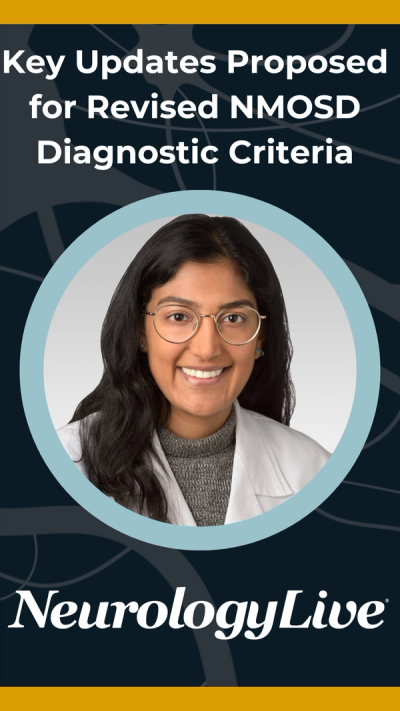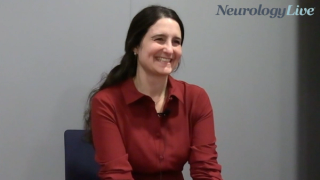
MS and Demyelinating Disorders
Latest News


Myelin Protective Small Molecule Lucid-MS Shows Promising Early-Stage Data in Healthy Volunteers
Video Series

Latest Videos
Shorts







Podcasts
CME Content
More News

A cohort analysis, presented at ACTRIMS 2026, provided insight into the clinical characteristics, disease burden, and treatment sequencing of patients with neuromyelitis optica spectrum disorder treated with inebilizumab.

Real-world phase 4 data show cladribine keeps relapse rates low and safety steady in relapsing MS patients, including those 65+.

In honor of National Women Physician’s Day, the NeurologyLive® team highlighted recent studies on women transforming neurologic care and advancing women’s health.

Riley Bove, MD, MS, associate professor of neurology at the University of California San Francisco, shares her personal view on National Women’s Physician’s and why it’s important for clinicians and patients in the field.

In honor of National Women Physicians Day, held February 3, 2026, a trio of women clinicians highlighted the importance of individualized care for women living with multiple sclerosis.

Here's some of what is coming soon to NeurologyLive® this week.

Anti–interleukin-6 receptor therapy may offer a new treatment option for patients with NMOSD and MOGAD who do not respond to rituximab, according to new findings.

The REVISE trial, a phase 2 study evaluating GenSight Biologics’ lenadogene nolparvovec in patients with Leber hereditary optic neuropathy, is expected to begin in January 2026.

Here's some of what is coming soon to NeurologyLive® this week.

Here's some of what is coming soon to NeurologyLive® this week.

Annette Langer-Gould, MD, PhD, lead for clinical and translational neuroscience at Kaiser Permanente, discusses findings and significance from a recently published trial assessing rituximab in patients with relapsing multiple sclerosis.

Oculis advances Privosegtor, a potential first neuroprotective therapy for optic neuritis, following FDA breakthrough designation and promising trial results.

Here's some of what is coming soon to NeurologyLive® this week.

Follow NeurologyLive's conference journey in 2026, highlighting advancements in diagnostics, treatments, and multidisciplinary care across multiple neurological conditions.

Catch up on any of the neurology news headlines you may have missed in December 2025, compiled into 1 place by the NeurologyLive® team.

The newly approved generic product is expected to perform like other high-quality glatiramer acetate generics, with differences confined mainly to the manufacturer and device, not mechanism or dosing.

A new large-scale analysis revealed that patients with identical EDSS scores can exhibit distinct patterns of functional impairment, identified using artificial intelligence–based clustering algorithms.

Here's some of what is coming soon to NeurologyLive® this week.

Benjamin Greenberg, MD, MHS, a nationally recognized neuroimmunologist, spoke about the clinical impact of the latest NMOSD recommendations and their implications for diagnosis and care.

Take 5 minutes to catch up on NeurologyLive®'s highlights from the week ending January 2, 2026.

At ECTRIMS 2025, the William S. and Lois Stiles Edgerly Professor of Neurology at Yale School of Medicine discussed evolving insights into the disease pathogenesis of multiple sclerosis.

In this Neuropathways piece, Kevin Chang, PharmD, explores the complexities of remyelination in multiple sclerosis and the potential of Wnt/β-catenin signaling as a therapeutic target.

Take 5 minutes to catch up on NeurologyLive®'s highlights from the week ending December 26, 2025.

As part of NeurologyLive®'s Year in Review 2025, we've compiled the most-listened episodes this year of our biweekly podcast, Mind Moments®.

A look back at clinician-led features from 2025 that examine the questions, data, and decisions shaping neurologic care.




















